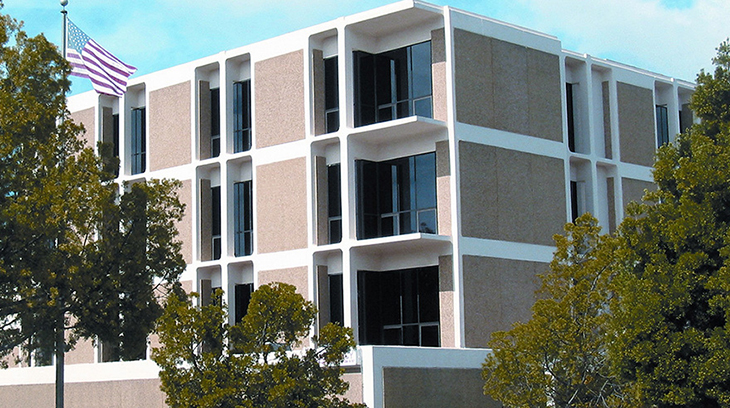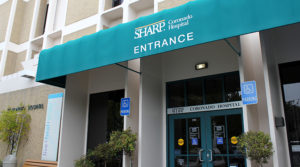
UPDATE November 28, 2016 – The Sharp Professional Nurses Network’s union withdrew the 10-day notice to strike after a series of last minute agreements were reached early Sunday evening. The union and Sharp management are scheduled to resume bargaining on Tuesday, November 29 to complete a new contract.
The United Nurses Associations of California/Union of Health Care Professionals announced on Thursday that Sharp Healthcare’s registered nurses have delivered a ten day notice to strike. The strike will begin the Monday after Thanksgiving, November 28. The strike is in response to Sharp’s repeated violations of federal labor law and refusal to address patient care problems caused by an escalating crisis in nurse turnover.
The notice informed Sharp that the nurses will strike for three days, beginning at 7:00 AM on Monday, November 28 and continuing through Wednesday, November 30. The Sharp RNs intend to return to work on Thursday morning, December 1, for their 7:30 AM shifts.

Earlier this month the members of Sharp Professional Nurses Network (SPNN) overwhelmingly voted to reject management’s so-called “last, best and final offer” and authorize an unfair labor practice strike. SPNN represents almost 5,000 registered nurses at Sharp, the largest health care system—providing more than one-third of health care services—in San Diego County, the second largest county in the state. This will be the largest strike of registered nurses in California this year, and the second largest strike of any kind in the nation (behind the Communication Workers of America strike).
The nurses maintain that management’s declaration of impasse and unilateral implementation of its final proposal, announced on October 28, were illegal, in part because the parties were still bargaining and each session saw movement from one or both sides. The nurses have filed unfair labor practice charges (ULPs) with the National Labor Relations Board (NLRB) over the violations. Other ULP charges filed include unlawful surveillance, threats and interrogation against the nurses by management.
Sharp Healthcare states that the union has chosen to strike rather than accept Sharp’s generous market-competitive economic proposal. Sharp’s proposal provided increases for our nurses ranging from 16 to 26 percent over the three-year contract term.
“Sharp says we rejected a 26% raise. Flat out not true,” said Magnusen. “Only a quarter of the nurses could get that raise, at most. It’s subject to management favoritism. Some nurses could actually see pay cuts under that proposal. And raises gained one year could be taken away the next. Clearly, it’s not going to recruit and retain strong nurses.”
“We feel like we’re voices crying in the wilderness and Sharp refuses to hear us,” said Christina Magnusen, RN, an eight-year nurse in Sharp Grossmont’s Surgical Intensive Care Unit (SICU) and SPNN’s President. “Their illegal declaration of impasse is another example of that. The crazy thing is they even admitted to a roomful of nurses in negotiations on October 14 that they have a turnover problem. In public they try to paint this rosy picture, but the numbers tell the story. Sharp’s on track to lose 700 nurses in 2016, up from 605 last year and 514 the year before that. How can they keep denying it?”
“To continue to lose well-trained nurses compromises patient care,” said Denise Duncan, RN, President of United Nurses Associations of California/Union of Health Care Professionals (UNAC/UHCP). The problem is worst in Sharp’s critical care units like the Emergency Departments, ICUs and Labor & Delivery. The San Diego community deserves to be cared for by well-trained, experienced nurses, because continuity is critical to patient safety.”
“Sharp will lose $50 million in nurse turnover costs this year,” said Jackie Young, RN, Memorial ER, with 23 years’ experience at Sharp. “It would be cheaper for Sharp to invest in retaining experienced nurses instead of this constant churn of new nurses who come in, stay for two years, then leave. Their margin for the first eleven months of 2016 is more than $388 million, so they can afford to fix this problem right now. Instead they mask it with escalating overtime, escalating use of travelers, or agency nurses, and escalating incidents of missed meals and rest breaks.”
Sharp’s RN turnover comes from falling farther and farther behind the wage scales of comparable health care systems in San Diego. Sharp maintains their wages are average, but a comparison of wage grids between Sharp and hospitals like Kaiser and UCSD reveals a huge discrepancy in pay. On the Kaiser RN wage grid a two-year nurse makes $52.20 per hour. On UCSD’s grid a nurse can reach $52.58 after only eight years’ experience. A nurse would have to work at Sharp for 22 years—two decades longer than at Kaiser—to reach $52.20 per hour.
“Why should the public care how much we make?” Magnusen continued. “Because pay is linked to retention, and retention is linked to quality care. If this were just about money for us, we would have left Sharp years ago. We’re the ones who stayed. We want to fix this.”
Sharp remains hopeful that a new nurse union contract agreement will be completed and a strike avoided. Should a strike occur, Sharp has contracted with a staffing agency to bring in qualified replacement nurses to ensure adequate staffing levels at all times.




